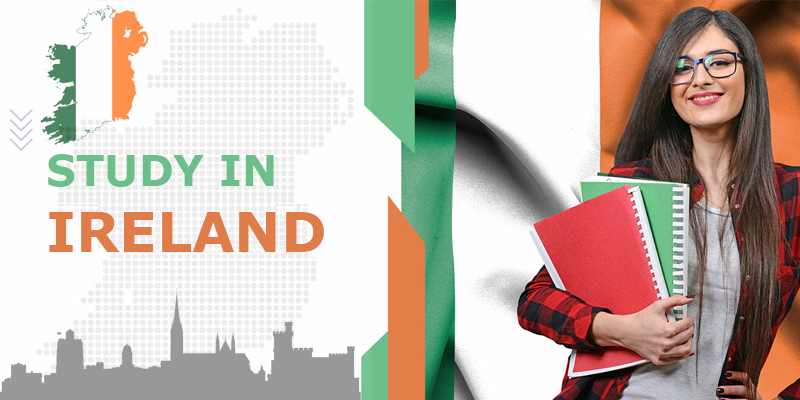Study Abroad

Facts about Ireland
Capital: Dublin
Currency: euro (€) (IEP)
Language: English and Irish (Gaelic) are the two official languages of the Republic of Ireland. In Northern Ireland, English is the official language.
Time Difference: Ireland is 4.5 hours behind India.
Major Regions/ Cities: Dublin, Cork, Belfast, Galway, Limerick, Kilkenny, Waterford, Derry Calling Code: + 353
Education System:
The Education System in Ireland is divided into three levels: Primary level consist of 8 years, Secondary for 5 or 6 years and Higher Education which offers a wide range of opportunities from post-secondary courses, to vocational and technical training, to full degree and the highest post-graduate levels.
The higher education system in Ireland is broader in scope and encompasses the university sector, the technological sector, the colleges of education and private, independent colleges. The institutions which fall within the first three groupings are autonomous and self governing, but substantially state funded. Cooperative Education” involves placement of students in employment relevant to their Degree programmes for six or eight months during their undergraduate studies.
Education has been a key factor in making Ireland one of the fastest growing economies in the world over the past decade.
Admission Timings/Intake
Intake: February, May, July & September
Admission Timings/Intake
Intake: February, May, July & September
Eligibility/Entry Requirements
a) International students attended a secondary school in Ireland and completed the Leaving Certificate Examination. This route is chosen by a number of International students who commonly take the examination in along with the English language tuition.
b) International students undertake recognized public examinations in their respective countries. This is a more popular route and it is essential that every applicant check that the educational qualifications she/he is presenting are adequate and good enough to satisfy entry requirements. e.g. for medicine 3 good ‘A’ Level passes (grades A/B) or the equivalent, in relevant subjects are required.
c) The minimum requirement for most degree level programmes is 3 grade ‘C’s at A level or equivalent. Further it can be clarified from the institution one is interested in.
d) c) Student can apply to the institutions directly or to the Central Applications Office for Undergraduate Programmes.
Documents Required for Application
Attested copies of the mark sheets previous exam passed
Academic Reference Letters from recent institutions
In case of work experience at least one work reference letter from the employer who can comment on your professional skills and abilities should be submitted.
Statement of Purpose(SOP)
Curriculum Vitae/ Resume
Portfolio is required in case of Arts and Design courses
Visa Requirement
Good academics
IELTS or TOEFL
Finance to support education
Genuine Intentions to Study in Ireland
Part time work during studies
Students are permitted to work in Ireland part time up to a maximum of 20 hours per week during studies and 40 hours per week during vacation.
Work opportunities after studies
Students may apply for work permit in Ireland once they finish their degree course. After completing studies in Ireland, a student is entitled to get 6 months of Graduate Visa, which allows you to work full time and also look for a relevant job of their field.